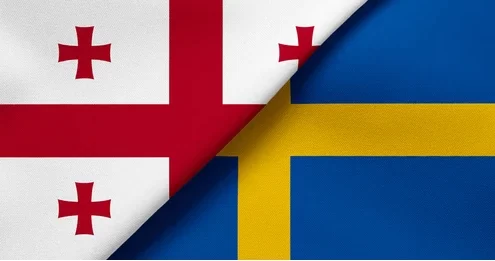The Swedish government has announced the cessation of all direct governmental cooperation with Georgia after the October 26 parliamentary elections, in which international observers found multiple irregularities, including voter intimidation and physical assaults on election monitors.
Sweden’s executive suspended cooperation just before the parliamentary elections, Swedish Minister for Cooperation, Development, and Foreign Trade Benjamin Dousa told “Dagens Nyheter.”
“This includes cooperation between tax authorities, which we do not consider appropriate in the current circumstances,” he added.
The Swedish minister emphasized his concern about developments in Georgia, pointing to the “foreign agents” law adopted earlier this year by the ruling Georgian Dream party.
Dousa said the Swedish government could resume official cooperation with Georgia if the country moves closer to the European Union again.
FOR THE MOST IMPORTANT NEWS, FOLLOW US ON TWITTER!
“If it proves that Georgia is serious about its EU membership application and cares about its relations with the EU, Sweden’s doors are open,” the minister assured.
Thousands gathered outside parliament in Tbilisi on Monday evening to protest the results of the weekend’s legislative elections, in which a pro-Kremlin party claimed nearly 54% of the vote.
Georgian President Salome Zurabishvili, a former ally of the “Georgian Dream” who has become a fierce critic of the ruling party, said she did not recognize the results and referred to the vote as a “Russian special operation.”
For many years, Georgia has been one of the most pro-Western countries to emerge from the Soviet Union, and polls show that many Georgians dislike Russia for its “support” of their two breakaway regions.
Russia and Georgia fought a brief war over the rebel province of South Ossetia in 2008, resulting in Georgia’s defeat. However, the election result challenges the EU’s ambition to integrate more former Soviet states.


